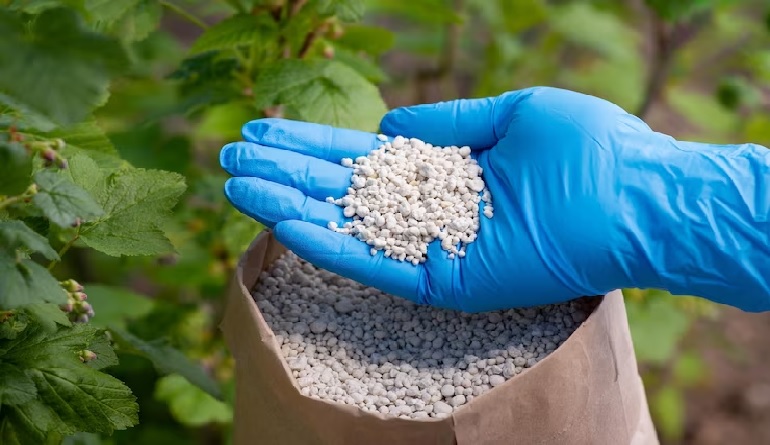
ATM News Network: The price of DAP in the global market has fallen to $553 per tonne from $640 per tonne in February. Urea price has come down from $325 to $315 per tonne. The price of MOP for India has reached $422 per tonne.
D Ammonium Phosphate (DAP) and Urea prices continue to decline. DAP price in the global market has fallen to $553 per tonne from $640 per tonne in February. An Indian private sector company has recently signed an agreement with a Saudi Arabian company at a new price. At the same time, urea prices have come down to $315 to $325 per tonne (CFR).
About a year and a half ago, the price of DAP had gone above $1000 per tonne. The price of urea had gone above 900 dollars. According to industry sources, the increase in availability of fertilizers in the global market, as well as China's massive entry into the export market, are the main reasons for the fall in prices.
India imports about 100 lakh tonnes of urea every year. In the last financial year, around 6 million tonnes of DAP was imported. The consumption of DAP in the country is around 100 lakh tonnes. In the last financial year, the production of DAP has been around 4 million tonnes. However, most of the raw materials for its production are imported. The price of phosphoric acid, the raw material for DAP, has fallen to $1,050 per tonne, from $1,475 a tonne a few months ago.
Muriate of Potash (MOP) prices have also come down. Currently, its price for India is $422 per tonne, industry sources said. Recently, a major fertilizer cooperative in the country has made deals for two shipments of 30 thousand tonnes at this price. These deals are with Russian company Ural Kali and German company. Earlier, the price of MOP was $590 per tonne. On the other hand, the price of ammonia gas, used in the production of urea, was $375 on April 13, while the price of ammonia touched $1,200 per tonne.
The fall in fertilizer prices is benefiting the government in the form of subsidy savings. Producers are free to set prices for non-urea decontrol fertilizers. The price of urea is decided by the government. The difference between the cost of production or the import price and the price paid to the farmers is given as a subsidy to the industries.
Government provides subsidy under Nutrient Based Subsidy (NBS) scheme for deregulated fertilisers. Under this per kg subsidy is given for Natra (Nitrogen), P (Phosphorus), K (Potass) and S (Sulfur). As far as the prices of deregulated fertilizers are concerned, the price of the best-selling fertilizer DAP has recently been increased by Rs 150 to Rs 1350 per bag (50 kg).
Before that DAP was priced at Rs 1200 per bag for a long time. Therefore, most of the unregulated fertilizers became more expensive than DAP. As a result, the use of DAP increased rapidly and sales of complex fertilizers and MOP declined. However, currently the price of complex fertilizer 20:20:0:13 has come down to Rs 1200 per bag. Despite the imbalance in fertilizer use, the government increased the subsidy on nitrogen under NBS for the Rabi season, while reducing the subsidy on other nutrients.
Regarding the availability of fertilizers, industry sources say that the availability of all fertilizers is better this time. Notably, there was a shortage of DAP in the 2021 rabi season. Availability issues persisted in the following season as well. In February 2022, the Russia-Ukraine war had a severe impact on the availability of fertilizers in the global market, leading to a sharp rise in prices. Therefore, the government had to increase the subsidy of fertilizers to a large extent.
Declining phase of fertilizer prices started from December 2022 and due to this, the government saved about Rs 25 thousand crores in fertilizer subsidy in the last financial year (2022-23). The budget for the current financial year (2023-24) has provided for a fertilizer subsidy of Rs 1,75,100 crore. As per the revised estimate of the last financial year, the government has estimated to spend Rs 2.25 lakh crore on fertilizers.
Union Fertilizer Minister Mansukh Mandaviya has contributed a lot in reducing the prices of fertilizers. The fertilizer policy implemented by him has contributed greatly to the reduction of fertilizer prices in the international market.
- Manmohan Kalantri, National President, All India Agro Input Dealers Association